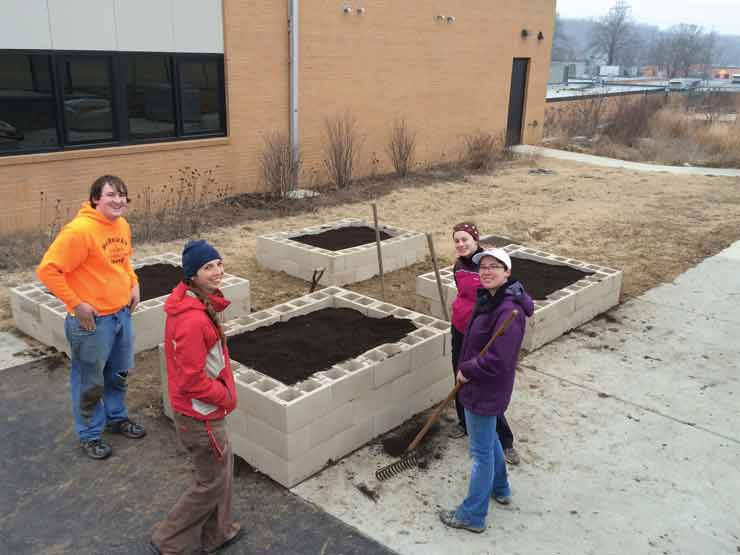If you want to change the world, get kids on board at an early age. That’s the idea behind last year’s inaugural Green Schools Quest, which challenged local students to plan and implement low- or no-cost sustainable practices. “It helps the students become aware of their daily actions, and it empowers them to make a difference,” says Hope Gribble, Gateway Chapter USGBC education and green schools coordinator. Last year, nearly 40 schools participated.
Orchestrated by the Missouri Gateway Chapter of the U.S. Green Building Council, the competition asks schools to work with a mentor and document the project and its impact, which could include reducing the school’s carbon footprint, lowering operating and maintenance costs, conserving natural resources and promoting environmental stewardship in school and local communities.
Forsyth School won first place in the elementary school category for incorporating solar energy into the science curriculum. “Students engaged in activities to build their understanding of solar energy as a cleaner, greener form of renewable energy,” says teacher Christine Torlina. Students raced mini solar cars, baked with solar ovens, viewed solar arrays around the community, shared ideas for solar inventions and monitored solar energy production of the school’s panels.
Some schools tackled a variety of projects, including North Kirkwood, the middle school winner. Students implemented a lights-off campaign to eliminate energy use, a composting program and a no idling campaign to decrease parking lot idling. The last project had a huge impact, lowering the idling rate from 50 percent to less than 10 percent.
Each project involved extensive student research, says Kirkwood ecology teacher Chris Hooker. “For the lights-off campaign, students researched how much energy each bulb uses and figured out the cost to light a room for an hour,” he explains. “They also researched installing motion sensors (to control lighting more efficiently) and presented it to the school board to ask for sensors in a few rooms.”
The project at Parkway Central, the high school winner, was coordinated by environmental club Operation 350, which enlisted other student groups to participate. Students designed and constructed a school community garden and asked teachers to incorporate the garden and its products into future lesson plans. “The students quickly grasped that a garden was an opportunity to close a loop—we already had composting, so we use our compost to grow food, then we eat the food and compost the scraps,” says Parkway sustainability manager Erik Lueders.
Projects like these can have a major impact, Gribble says. “Several schools said this was the catalyst to start thinking about sustainability initiatives,” she explains. “It’s educating not only those within the school, but also the broader community, about how one project, one group of people, can make a difference.”
Pictured: Parkway Central students








